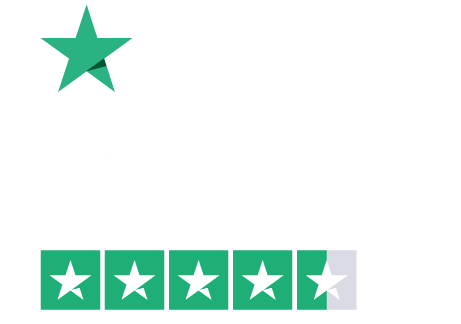Introduction: Why Setting Up a Sole Trader Business in the UK is a Smart Move
If you are thinking about working for yourself, deciding to set up a sole trader business could be the clearest way to begin. It is a straightforward path into self-employment in the UK, giving you control over your time, your clients, and your earnings without layers of paperwork getting in your way. Many people choose to set up a business as a sole trader because it lets them get started quickly. The sole trader UK setup is simple: you tell HMRC you are working for yourself, keep track of what you earn and spend, and get going. There is no need to deal with complicated company accounts or register on a board of directors. It is a practical option for freelancers, local shop owners, and anyone who wants to test a business idea before expanding. The benefits of being a sole trader in the UK are more than just simplicity. You make all the decisions, set your own working hours, and keep your profits after paying tax. Compared with setting up a limited company in the UK, many find that being a sole trader is a flexible way to grow without taking on added stress in the early days of business. Of course, becoming a sole trader comes with responsibilities, particularly around tax. You will need to register for self-assessment, understand your sole trader tax obligations, and keep clear financial records from the start. Many people are surprised at how manageable this is once they have the right systems in place. With support, running a successful sole trader business becomes much easier, allowing you to focus on your customers and your growth. In this guide, you will learn the sole trader registration process, understand how UK sole trader accounting works, and discover when VAT registration for sole traders is required. We will also cover business expenses for sole traders UK, help you understand sole trader and tax requirements, and explain when you might think about moving to a limited company as your business develops. If you have been considering working for yourself, now is a suitable time to learn how to set up a sole trader business in the UK. It offers freedom, flexibility, and a chance to build something that truly belongs to you.
What is a Sole Trader Business?
If you have ever thought about working on your own terms, becoming a sole trader might be the right fit for you. It is one of the easiest ways to step into self-employment in the UK, letting you start quickly while keeping control over your business.
Understanding the Sole Trader Structure in the UK
A sole trader business is the simplest way to work for yourself in the UK. It means you run your business as an individual, and you get to keep all the profits after you pay your taxes. It is a popular choice for freelancers, consultants, tradespeople, and many small business owners who want to jump into self-employment in the UK without too much red tape.
You will not need to deal with the paperwork that comes with setting up a limited company. Instead, you can register quickly and start trading as soon as you are ready. You will still need to keep track of your income and expenses and submit a self-assessment to HMRC each year, but many find this a fair trade-off for the flexibility it offers.
Advantages of a Sole Trader Business
There are many advantages of a sole trader structure. First, it is simple to start. You can set up a sole trader business quickly, often within a day, and there are fewer ongoing reporting requirements than there are for limited companies. You have full control over your decisions, and you get to build direct relationships with your clients. The lower costs and straightforward structure also mean you can put more of your time and money into growing your business rather than managing admin. Another big plus is that you can easily adapt to your business as it grows. If you decide to change your services or the way you operate, you can do so without going through complicated company processes.
Sole Trader vs Limited Company in the UK
It is important to compare sole trader vs limited company UK options before deciding which route to take. Being a sole trader is simpler and cheaper, but it does mean you are personally responsible for any debts your business takes on. A limited company offers limited liability, which can protect your personal assets if something goes wrong and can sometimes offer tax benefits as your income grows. Many people start as sole traders to test their business idea and move to a limited company later once they are earning more and want additional protection and tax advantages. We will discuss when it might be the right time to switch to a later section of this guide.

How to Set Up a Sole Trader Business in the UK
So, you have decided it is time to set up a sole trader business in the UK. Good choice. The sole trader setup in the UK is quick, flexible, and perfect if you are ready to dive into self-employment without layers of paperwork slowing you down.
Here’s how to get started.
Step-by-Step Sole Trader Registration Process
To get started, you need to tell HMRC that you are going to be self-employed. This step is part of the sole trader registration process. You can do it online by sharing your personal details and explaining what kind of work you will be doing. Once you have registered, you will be enrolled for self-assessment, which is the way you report your earnings and pay your tax each year. Not long after registering, HMRC will send you a Unique Taxpayer Reference (UTR). Keep this number safe, as you will need it when it is time to file your tax return. The best part? You can start trading straight away once you have told HMRC. There is no need to wait around. You can get on with offering your services, sending out invoices, and earning as soon as you are ready.
Choosing and Registering Your Business Name
You can trade under your own name, or you can choose a business name that fits the work you do. If you decide to use a business name, make sure it is not already being used by someone else and that it does not include words that are restricted. There is no official register of sole traders, but it is smart to do a quick online search to check if your chosen name is available. If you plan to build a brand, it is worth buying a website domain that matches your business name so people can find you easily.
Essential Licenses and Legal Requirements
Depending on the type of work you plan to do, you might need specific licenses before you can get started. For example, if you are planning to open a small food business or offer beauty treatments, you will need to meet your local council’s requirements. It is also worth looking into public liability insurance to protect yourself and your business if something goes wrong. Once you are set up, it is important to keep clear records of what you earn and what you spend as part of your UK self-employment registration. Good record-keeping will help you understand how your business is doing and will make filing your tax return easier when the time comes.
Prefer watching instead?
Here’s a video summary for you


Understanding Sole Trader Tax Obligations
When you run your own business, you get freedom—but you also get a few extra jobs to handle. One of these is understanding how tax works when you choose the sole trader setup to start your journey into self-employment in the UK. It might feel like a lot to take in at first. That is normal. Once you get into the habit of managing your taxes, it will simply become part of your business routine.
Sole Trader and Tax – What You Need to Know
When you set up a sole trader business, you are responsible for paying tax on your profits and making National Insurance contributions. Unlike a job where your employer sorts it out for you, it is now your call to keep things on track. The basics are simple: you keep notes on what you earn and what you spend on your business. At the end of the year, you work out your profit. That is what you will pay tax on. It sounds like a big job, but once you start, it is less scary than it seems.
How to File Self-Assessment for Sole Traders
If you’re a sole trader in the UK, you are required to file a Self-Assessment tax return with HMRC each year. This process involves reporting your income and claiming any allowable business expenses to calculate how much tax you owe. Most sole traders choose to file online, and many manage it themselves without any issues. However, if the process feels overwhelming, it’s perfectly okay to seek help from a professional. The key is to start early filing on time. It helps you avoid last-minute stress and reduces the risk of unexpected tax bills. Staying organized throughout the year makes the whole process smoother when the deadline approaches.
VAT Registration for Sole Traders
You may not need to think about VAT registration for sole traders right away. But if your business starts to grow and your turnover goes above the VAT threshold (currently £90,000 in the UK), you will need to register. This means you will charge VAT on your sales and may reclaim VAT on your eligible costs. If you are not there yet, that is fine. Just keep it in mind so you are ready when the time comes.
Managing Finances as a Sole Trader in the UK
Sorting out your money is not always the most exciting part of self-employment in the UK, but it is important if you want your business to keep running smoothly. If you have chosen the sole trader setup in the UK, it is smart to get into good habits early so you can avoid stress later. It does not have to be perfect. It just needs to work for you.
Sole Trader Accounting Best Practices
Once you set up a sole trader business, start keeping track of what you earn and what you spend. This sounds obvious, but it is easy to forget when you are busy with clients or trying to bring in new work. You do not need special software to do this. A notebook on your kitchen table or a simple spreadsheet on your laptop will do just fine. Writing things down as you go means you will not be left hunting for receipts when tax season rolls around.
Understanding Business Expenses for Sole Traders UK
Running a business means spending money to make money. Whether it’s a new laptop, printer ink, or travel for a job, many of these costs can count as business expenses. This means you can take them off your income when working out your taxes. Here’s a simple tip: keep your receipts in one place and jot down what each purchase was for. You will thank yourself later.
Budgeting and Cash Flow for a Successful Sole Trader Business
It is easy to focus on getting paid and forget about what is coming up. But taking a few minutes to plan helps. Think about the regular bills you need to pay and any upcoming or unexpected expenses you might face. Cash flow can go up and down, especially when you are just getting started. Setting aside a bit of what you earn each time you get paid will help you manage quieter months without panicking. This way, you will be ready for your bills and can keep your business moving without stress.
Running a Successful Sole Trader Business
Starting your business takes courage. Keeping it going is the next step. If you use the sole trader UK setup, you already know the freedom that self-employment in the UK gives you.
But how do you keep things moving?
Tips for Growing Your Sole Trader Business in the UK
Growth doesn’t need to be fancy. It can come from small, steady work. Show up. Do what you say you will. Treat customers well. When you do, they often come back or tell others. It helps to ask for a review after a job. A few words can build trust with new customers. Keep learning step by step. Maybe read about your industry or learn about a new tool. Talk to others in your line of work now and then. A short chat can lead to ideas or jobs you did not see coming.
Staying Compliant with HMRC as a Sole Trader
Paperwork may not be fun, but it matters. Write down what you earn and what you spend. You don’t need special tools. A notebook works fine. When it is time for your self-assessment, you will be ready. If you are not sure about something, talking to an accountant can help you.
When to Consider Switching from Sole Trader to Limited Company
As your work grows, you might think about moving from sole trader to a limited company. This can happen if you earn more or want to protect personal savings. A limited company has its benefits, but it also means more rules and work. It can help to speak with someone before deciding.

How Lanop Can Help with Your Sole Trader Setup and Accounting
Running a business on your own can feel like a lot. You do not have to handle it all by yourself. At Lanop we help people set up as sole traders in the UK, we guide you through each step, so you know what to do next. This guidance can help reduce the stress of getting started. We can also help you manage your numbers. We show you how to keep clear records. We will help you sort your taxes. It saves time and can help you avoid making mistakes. As your work grows, your plans might change. We can talk with you about moving from self-employment in the UK as a sole trader to a limited company if that is the right step for you. Working with us means you get advice you can trust. It leaves you with more time for your work and your customers. If you want to feel sure about your business, we are here to help you.
Conclusion: Take Charge of Your Future with a Sole Trader Business
Running your own business as a sole trader in the UK is an effective way to start working for yourself. You get to decide how you run things and when you work. It helps to note what you earn and spend so you are ready for tax time. If you want help along the way, Lanop can help you. We can guide you with your setup and keep things clear so you can focus on your work.
FAQs on Setting Up a Sole Trader Business in the UK
How do you register as a sole trader in the UK?
To register as a sole trader in the UK, sign up with HMRC for self-assessment. You can do this on their website. It didn’t cost anything. You add your name, address, and the type of work you will do. HMRC sends you a tax reference. From there, keep track of what you earn and spend. This helps when you sort your taxes later. It is a good idea to register early. That way, you know you are ready when you start trading and will not miss important deadlines for tax.
How to start a sole trader business in the UK?
To start a sole trader business in the UK, decide what service or product you want to offer. You can trade under your own name or pick a business name you like. Next, register with HMRC so you can handle your tax returns each year. This step is free and done online. Keep track of any money you earn and any costs from the start. It helps to check if you need insurance or a license for your work. Once you have taken these steps, you can begin working as a sole trader.
What are the benefits of being a sole trader in the UK?
A big benefit of being a sole trader in the UK is how easy it is to start. You do not have to deal with much paperwork. You get to decide how you run your business each day. The money you make, after paying tax, is yours to keep. Your running costs can stay low. It is also easier to build trust with customers when they deal with you directly. If you ever want to stop or change what you do, it is simple to do that. Many people choose this path because it keeps things clear and in their hands.
How to set up a business as a sole trader?
To set up a business as a sole trader, decide what work you will do. You can use your own name or pick a business name. Then, register with HMRC so you can pay your taxes. It is free and you can do it online. From the start, write down what you earn and what you spend on your work. You may need insurance, depending on what you do. Some jobs also require a license. Once you have taken these steps, you can begin trading. It is a simple way to start working for yourself.
How to file self-assessment for sole traders?
To file a self-assessment for sole traders, first gather your income and expense records for the year. You will need to sign in to your HMRC account online. If it is your first time, you will need to set up your account and get your details from HMRC. Fill in the sections with your earnings and your business costs. This helps work out how much tax you need to pay. Double-check your details before you send it. You can pay your taxes online, too. It is best to file early so you have time to plan your payment.
What is the sole trader tax rate in the UK?
The sole trader tax rate in the UK is based on your profits. You get a personal allowance each year. This part is tax-free. After that, most people pay 20% of their profits up to the limit. If you earn more you pay a higher rate on that extra amount.









